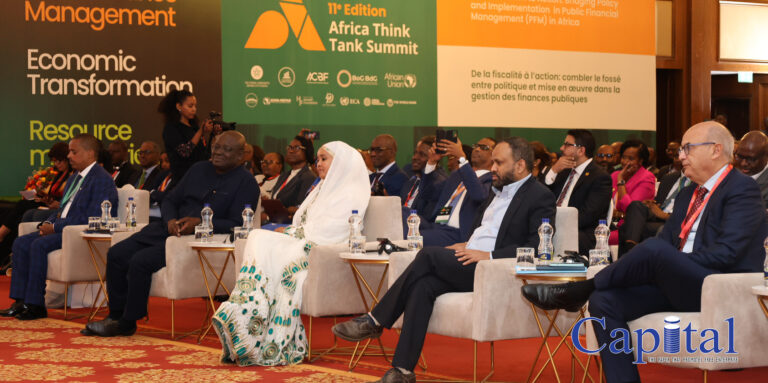In an insightful discussion on the evolving landscape of Ethiopia’s banking sector, Eyasu Theodros, a U.S.-licensed financial advisor with extensive experience advising global diaspora clients and financial institutions, shares his expert views on the country’s banking challenges and merger prospects. Drawing on global parallels and lessons from markets such as the United States, Kenya, and Nigeria, he examines how Ethiopia’s unique trust-based banking origins have shaped current integration difficulties. Eyasu digs into the dynamic interplay between capital requirements, corporate culture, governance, and digital modernization, outlining practical strategies for Ethiopian banks to not only meet regulatory thresholds but also to build credibility, attract diaspora investment, and compete on a global stage. His perspectives shed light on the critical role of co-governance, voluntary mergers, and forward-looking reform in positioning Ethiopia’s banking sector for sustainable growth and inclusion in the digital age. Excerpts;
Capital: How did Ethiopian banks’ initial focus on “faith” rather than “strength/operational structure” lead to current integration challenges?
Eyasu Theodros: Private banking in Ethiopia originated from social trust—the confidence of various groups, associations, and communities. This trust was crucial in mobilizing deposits during the sector’s early years. However, as the sector expanded, this trust was not matched by adequate investments in systems, governance, and compliance. Consequently, banks that leaned heavily on trust in their formative years now face the challenge of translating personal relationships into institutional systems, a transition that has proven to be difficult.
This situation is not unique to Ethiopia. The U.S. experienced a similar phase with its early Savings & Loan associations, which were also built on community trust and served millions of Americans. However, when governance and oversight failed to keep up with growth, it led to the Savings & Loan crisis of the 1980s. The lesson is clear: while trust can establish banks, only structure can sustain them.
Capital: Is the $2.5 billion minimum capital requirement the primary motivation for mergers, or is it merely accelerating existing structural problems?
Eyasu: The $2.5 billion threshold is indeed an important catalyst, but it should not be viewed as the main motive. Ethiopia’s banking issues run deeper, encompassing fragmented systems, governance gaps, and risk management deficiencies. While the higher capital requirement accelerates decision-making, it does not address these fundamental issues. Attracting new capital requires structural improvements, not just increased thresholds. We’ve seen similar scenarios elsewhere; for example, Nigeria’s 2005 banking reform raised minimum capital requirements significantly, prompting a wave of mergers that created larger banks on paper without automatically resolving governance gaps.
Capital: Merger discussions are hindered by “attitudes.” What is the primary obstacle to achieving a “merger of equals” in Ethiopia?
Eyasu: The most challenging aspect of any merger lies not in financial calculations but in cultural alignment. While numbers can be reconciled quickly, aligning perspectives and organizational cultures demands careful effort. A true merger of equals requires boards and executives to transcend their legacies and concentrate on the long-term value that can be generated for depositors, shareholders, and the broader economy.
The case of Truist in the United States exemplifies this. Formed from the merger of BB&T and SunTrust, it became the sixth-largest bank in the U.S. However, its success hinged more on cultural integration—merging distinct leadership styles, governance approaches, and brand identities—than on mere balance sheet size.
Capital: What practical steps should bank boards take to rebalance power during merger negotiations and clarify legacy responsibilities?
Eyasu: Boards can facilitate smoother merger negotiations by establishing guiding principles before discussing specific positions. Defining clarity around shareholder protection, governance balance, and legacy responsibilities can reduce tensions later on. International examples show that when co-governance rules are defined upfront, transitions tend to be smoother and trust is maintained. South Africa provides valuable lessons: Standard Bank, in partnership with Liberty Life (2005), and Old Mutual, in collaboration with Nedbank (2010), both demonstrated that setting governance principles in advance—including board seats, shareholder rights, and decision-making rules—helps prevent power struggles and preserves trust during mergers.
Capital: What are the benefits of a voluntary merger, like Truist, compared to waiting for banks to be compelled by market forces?
Eyasu: Waiting for banks to merge under pressure often leads to mergers born from weakness. Voluntary mergers allow institutions to take control of their future, align cultures, and integrate systems early on. This principle holds true across the board: a merger forced by circumstances is seldom strong. The Truist example illustrates that voluntary mergers maintain control, cultural harmony, and shareholder value. Ethiopian banks should not wait for regulatory or market pressures to act. A voluntary merger represents leadership and foresight, strengthening institutions before they face challenges.
Capital: How critical is a true “co-governance” model for the long-term success of a merger between Ethiopian banks, similar to Truist?
Eyasu: Co-governance is essential for long-term success; it is not merely optional. If one party feels absorbed rather than as an equal partner, mistrust can develop. Striking a balance in board committees, executive roles, and decision-making fosters unity rather than rivalry.
Global experience supports this: when mergers are disguised as acquisitions, value diminishes quickly as key leaders and talent depart.
However, authentic co-governance results in institutions that are stronger than either partner alone. In the context of Ethiopia, co-governance will determine whether mergers create national champions or merely larger, more vulnerable entities.
Capital: Beyond meeting capital requirements, what should be the main strategic goal of Ethiopia’s banking merger?
Eyasu: Meeting capital requirements is just the beginning. The deeper goal should be to build institutions that inspire confidence among local savers, diaspora investors, and private markets.
In today’s interconnected landscape, stronger banks are not only defined by capital but also by their ability to access correspondent banking, engage in capital markets, and meet international standards. Ethiopian banks must view themselves as global competitors, not just local players. The challenge lies in not only meeting benchmarks but also in earning correspondent credibility and diaspora confidence.
This is critical as Ethiopia prepares to engage with global markets. Attracting private capital flows—such as diaspora bonds and correspondent banking relationships—requires more than patriotic appeals; it necessitates predictable rules, transparent governance, and credible oversight. Meeting the capital threshold is merely the entry ticket; credibility is what secures long-term investment.
Furthermore, Ethiopian banks must prove they can gain the trust of international partners. Access to correspondent banking isn’t solely based on capital size; it demands evidence of compliance, transparency, and reliable governance. Donors and multilateral organizations like the IMF, World Bank, and IFC are closely monitoring the situation; banks that meet these standards will gain both credibility and opportunities. In this way, Ethiopia’s merger moment is also a reform moment—a chance to demonstrate that local banks can operate at a level that reassures regulators in Washington, London, or Brussels. This reassurance is crucial for unlocking deeper flows of private and diaspora capital. As Ethiopia undergoes significant reforms in partnership with the IMF, focusing on transparency, market discipline, and the transition to more open capital markets, a merger strategy aligned with these reforms will not only fulfill domestic requirements but also inspire international confidence. By embedding reform principles into merger planning, Ethiopian banks can signal their readiness to meet current capital regulations and adapt to future global standards. This is the kind of forward-looking vision that wins trust from regulators, investors, and the diaspora alike.
Capital: How can integration be leveraged to facilitate rapid digital modernization and better serve the next generation of customers?
Eyasu: Kenya’s M-Pesa and India’s Unified Payments Interface (UPI) illustrate the benefits of prioritizing digital integration: expanded access, reduced costs, and increased trust. Ethiopia has EthSwitch, the national switch intended to connect banks and microfinance institutions. While significant progress is being made to enhance its functionality, the system is not yet operating at the required scale or speed for real-time, low-cost payments.
Mergers could expedite this process. By consolidating operations, banks could better harmonize their back-end systems and allocate resources towards modernizing EthSwitch. This would enable instant transfers between institutions, lower remittance costs, and enhance financial inclusion. Additionally, a robust digital infrastructure would allow Ethiopian banks to collaborate with fintech companies, expand mobile-first lending, and create products tailored for the diaspora. If executed effectively, integration can accelerate EthSwitch’s evolution into a comprehensive digital network that fosters growth and inclusion.
Capital: How prepared are Ethiopian banks to compete with foreign financial institutions regarding their current capacity and digital readiness?
Eyasu: We can learn from other markets. In Kenya, for instance, domestic banks made substantial investments in digital platforms and mobile money ecosystems, preventing foreign institutions from establishing dominance. Nigeria provides another insight: when capital requirements increased and foreign competition intensified, only those banks that improved governance and modernized their systems managed to survive and thrive. The lesson is clear: without modernization and credible governance, local banks risk losing ground quickly to global players. The recent interest from international institutions underscores this reality—competition is not a theoretical concern. The diaspora’s funds are already being held overseas. The critical question is whether Ethiopian banks will develop the structures necessary to bring those funds back home.
Capital: What type of structure is needed to attract private investors and diaspora deposits?
Eyasu: A paradigm shift is necessary in our approach to the diaspora. Beyond their role as remitters, they represent a customer base and investor community with global experience and expectations. Treating them as long-term partners, rather than merely as money senders, will position Ethiopian banks to compete on an international scale. This requires a transition from a narrow focus on remittance volumes to a broader vision encompassing diaspora deposits and investments.
Remittances are Ethiopia’s largest and most reliable source of foreign exchange. However, very little of this flow remains in banks as deposits that can be reinvested in lending and long-term growth. Typically, remittances are spent on household consumption, education, or emergencies rather than saved. Consequently, banks have concentrated their efforts on increasing remittance volumes and competing with informal channels. While this is important for foreign exchange supply, it does not represent a sustainable long-term opportunity.
The real potential lies in addressing what I call the diaspora remittance paradox: billions flow in each year, yet without trusted mechanisms, they quickly exit. To capture deposits and investments, Ethiopian banks must offer structures that foster confidence—such as transparent governance, reliable deposit insurance, risk-sharing mechanisms, and reporting standards that align with international norms.
When diaspora investors observe these safeguards, trust will grow. Once banks earn that trust for deposits and investments, remittance flows will naturally follow. The most effective way to reduce the influence of the informal market is not by outspending it, but by out-trusting it.








